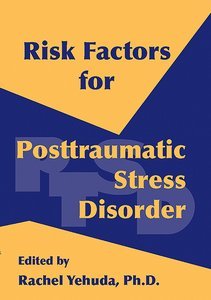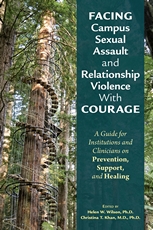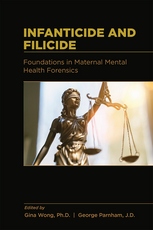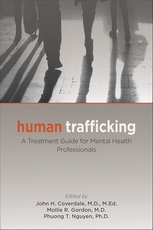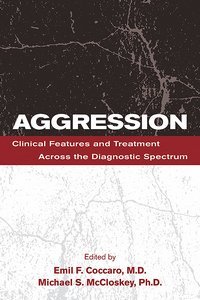Risk Factors for Posttraumatic Stress Disorder
View Pricing
Description
In the 1980's, the psychiatric community first officially recognized posttraumatic stress disorder (PTSD) as a diagnosis to describe the disorder that can occur following exposure to extremely traumatic events. Since that time, it have been observed that some patients who have been exposed to trauma do not develop PTSD or only have symptoms immediately following the event, whereas others show signs of chronic PTSD. Recently, it has been hypothesized that the development of chronic PTSD results from a combination of factors, only some of which are related to exposure to trauma.
Risk Factors for Posttraumatic Stress Disorder assembles almost 20 experts to examine the latest research on this topic. Specifically, it covers:
- Several important demographic and environmental risk factors for the development of PTSD
- Genetic risk factors identified through twin studies
- Neurbiological risk factors of PTSD and findings from several family studies
- Psychophysiological expressions of risk factors as well as neurocognitive risk factors for PTSD
- Personality characteristics in individuals with a propensity to develop PTSD and risk factors for the acute biological and psychological response to trauma
Complete with a summary of the latest findings that advance our knowledge of the effects of trauma, this resource it useful in identifying and treating individuals much earlier following a traumatic experience as well as in helping prevent vulnerable individuals from being exposed to traumatic events.
Contents
- Introduction. Strategies to study risk for the development of PTSD. Epidemiological risk factors for trauma and PTSD. Genetic risk factors for PTSD: a twin study. Family studies of PTSD: a review. Parental PTSD as a risk factor for PTSD. Neurocognitive risk factors for PTSD. Psychophysiological expression of risk factors for PTSD. Risk factors for the acute biological and psychological response to trauma. Personality as a risk factor for PTSD. Risk factors for PTSD reflections and recommendations. Index.
About the Authors
Rachel Yehuda, Ph.D., is Professor of Psychiatry at Mount Sinai School of Medicine and Director of the Traumatic Stress Studies Program at Mount Sinai School of Medicine and the Bronx VA Medical Center. She has written or contributed to more than 100 journal articles on posttraumatic stress disorder and has received numerous awards and grants for her work on the neurobiology of posttraumatic stress disorder.
Related Products
Carousel Control - items will scroll by tabbing through them, otherwise arrows can be used to scroll one item at a time
